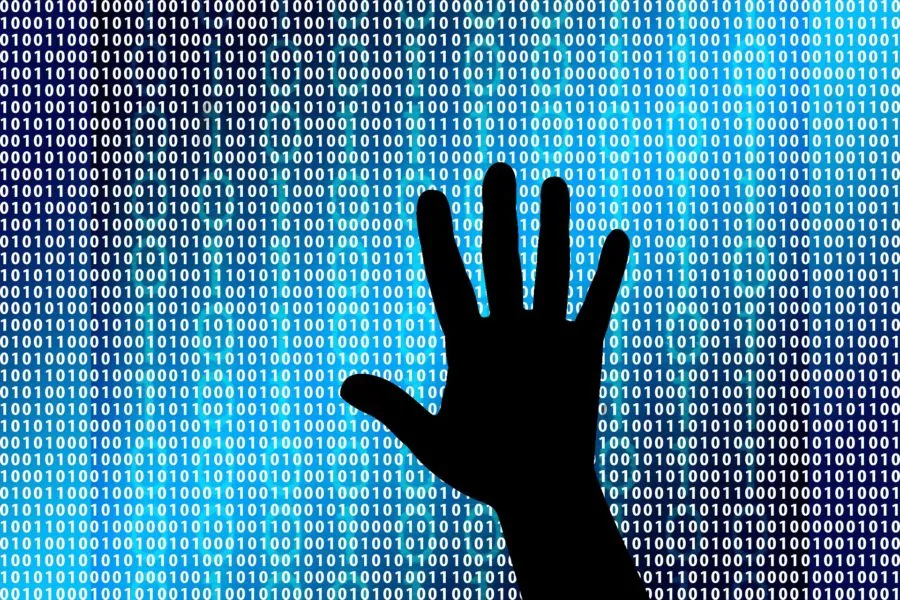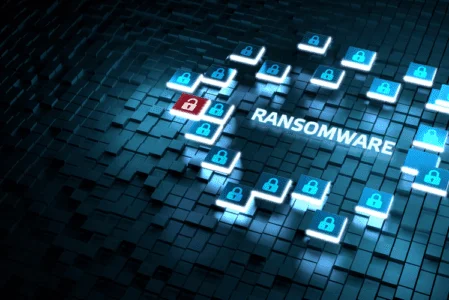
Table of Contents
Introduction
Enterprise ransomware protection is critical for all internet users worldwide, as ransomware attacks have become a growing threat to businesses and individuals. According to Cybersecurity Ventures, global ransomware losses are expected to exceed $20 billion by 2021. In these attacks, cybercriminals infect a victim’s computer or network with malware that encrypts their files, making them inaccessible until a ransom is paid. However, paying the ransom does not guarantee the safe return of your data and only encourages cybercriminals to continue their illegal activities. This article explores key ransomware protection tips and strategies to help you protect yourself and your data from ransomware attacks. By implementing these measures, you can reduce the risk of falling victim to these insidious cyber threats, keep your data safe and have a solid enterprise ransomware protection strategy.
What is Ransomware Attack?
This malicious software (malware) encrypts a victim’s data and then demands payment, usually in the form of cryptocurrency, to restore access to the encrypted information. Ransomware is typically spread through phishing emails or malicious software downloads. Once it infects a system, it can rapidly spread through a network and encrypt files on other computers or servers.
Ransomware attacks can devastate individuals and organizations, resulting in the loss of sensitive data, business downtime, and significant financial losses. It’s essential to protect against ransomware attacks, including keeping software up to date, using antivirus software, backing up data regularly, and being cautious when clicking links or downloading attachments from unknown sources.
Top Enterprise Ransomware Protection Tips to Keep Your Data Safe from Attacks
Getting ransomware isn’t the end of the story. Below are eight remediation tips that can help restore your data and peace of mind.
Back up your data
It would help disconnect infected devices from the network immediately to prevent ransomware from spreading. This means that ransomware locks you out of your files and prevents you from moving them. Thus, you must always keep a backup of them, preferably on an external drive and in the cloud. If you get infected, you can reinstall your files and wipe your computer or device from a ransomware infection. Data backups protect your data and keep you from paying a ransom to malware authors. Even though backups cannot prevent ransomware, they can mitigate its risks.
Change your credentials
An important tip for Enterprise Ransomware Protection it would be to change your passwords when you discover that your accounts have been compromised due to a data leak or ransomware attack. Adding this next tip to your arsenal of passwords will make them even harder to crack.
Use a VPN when accessing public Wi-Fi
Public Wi-Fi networks are often unsecured and can be easily hacked by cybercriminals looking to spread ransomware. Using a virtual private network can help protect your data by encrypting your internet connection, making it more difficult for hackers to intercept your data.
Use strong passwords
Whenever you update your credentials, choose a strong and unique password. Most users use the same password or a variation for all their accounts. Hackers can access your entire account simultaneously if one password is compromised, so diversify your passcodes. Keeping track of your credentials and generating secure login credentials is also possible with a password manager.
Keep your software up-to-date
Keeping your operating system, applications, and security software up-to-date prevents ransomware attacks and contributes to your Enterprise Ransomware Protection strategy. Make sure to regularly install the latest software updates and patches to ensure that your systems are protected against the latest threats.
Enable two-factor authentication
Using two-factor or multi-factor authentication adds an extra layer of security as it involves more than one verification form. Typically, you must verify your identity via another device, such as a smartphone. It reduces the likelihood of hackers successfully impersonating you.
Browse safely online
Keep your eyes open when you click. It is vital in your Enterprise Ransomware Protection strategy to include this: Never respond to emails or text messages from people you do not know; only download apps from reputable sources. Malware authors often use social engineering to trick you into installing unsafe files. Using a security extension on your browser is the best way to ensure safe browsing.
Don’t pay the ransom.
Even though ransomware attacks often target large organizations, you are also susceptible to them. In an Enterprise Ransomware Protection Strategy it is a rule: Don’t pay the ransom if this happens. It may feel like this is the only way to regain access to your encrypted files, but there is no guarantee that a decryption tool will be sent once the ransomware developers receive payment. The use of ransomware is becoming increasingly common, so it’s best to avoid paying any ransom.
Ensure comprehensive security
You can protect your devices from these cyber threats by adding a solution such as McAfee® Total Protection, which includes Ransom Guard. Moreover, ensure your device’s software (including security software!) is updated as often as possible since updates may consist of patches for flaws. The easiest way to provide digital wellness online is to use comprehensive security solutions in addition to the tools.
Best Antivirus Software On The Market for Enterprise Ransomware Protection
Bitdefender Antivirus Plus
Bitdefender Antivirus Plus is a top-of-the-line antivirus software that provides comprehensive protection against online threats for Windows PCs. Its advanced technology not only detects and removes malware but also prevents cyber-attacks by exploiting vulnerabilities in your system. With automatic updates and upgrades, Bitdefender Antivirus Plus ensures your device is always protected from the latest threats and it is a reliable option for enterprise ransomware protection.
Avast
Avast is a leading provider of enterprise ransomware protection through its all-in-one antivirus software. It offers robust protection against various cyber threats, including spyware, ransomware, adware and viruses. Avast’s user-friendly interface and free plan make it an attractive choice for beginners. Premium plans include a secure web browser, VPN and system optimisation tools. While Avast’s privacy monitoring and VPN could use some improvement, it remains one of the best antivirus programs on the market, excelling in malware protection and real-time security. Avast’s Ransomware Shield feature protects personal photos, documents and other files from being altered, deleted or encrypted by ransomware attacks, making it a strong contender for protecting corporate data from evolving cyber threats.
Norton 360 Antivirus
Norton 360 Antivirus is a comprehensive security suite that offers excellent real-time protection and malware detection rates. Its machine learning-based protection, VPN, identity theft protection tools, and password manager make it one of the most feature-rich antivirus programs available. Norton 360 Antivirus is known for its impeccable protection against online threats, making it a strong contender for Enterprise Ransomware Protection.
Microsoft Defender Antivirus
Microsoft Defender Antivirus is a free, integrated antivirus solution for Windows devices that provides decent protection against malware, spyware, adware, and ransomware. Its convenience and free availability make it an attractive choice for Windows users. However, it lacks some advanced features and users may need to take additional steps to protect themselves from online threats. It comes with Windows 11 and provides real-time, always-on antivirus protection. While Microsoft Defender Antivirus is a reliable option for enterprise ransomware protection, it is important to note that no antivirus software is foolproof, and it is still necessary to be vigilant and take preventative measures to keep your data safe.
NordVPN Threat Protection
NordVPN’s Threat Protection is a security feature that defends against online cyber threats such as malware, trackers, and malicious websites. It scans files as you download them and blocks them if identified as a threat, ensuring a safer browsing experience. This feature comes at no additional cost with a NordVPN subscription and is easy to set up on Windows and macOS devices.
Conclusion
Ransomware attacks are becoming increasingly common and Enterprise ransomware protection for businesses is vital. Following basic security practices such as regularly updating your software, avoiding suspicious emails or links, and creating strong passwords is recommended. In addition, reliable antivirus software with ransomware protection features can provide an extra layer of defence against these attacks. Some of the best antivirus products on the market with ransomware protection include Bitdefender Antivirus Plus, Norton 360 and Kaspersky Total Security. However, it is important to note that no antivirus software is foolproof, and it is still necessary to be vigilant and take preventative measures to keep your data safe.

